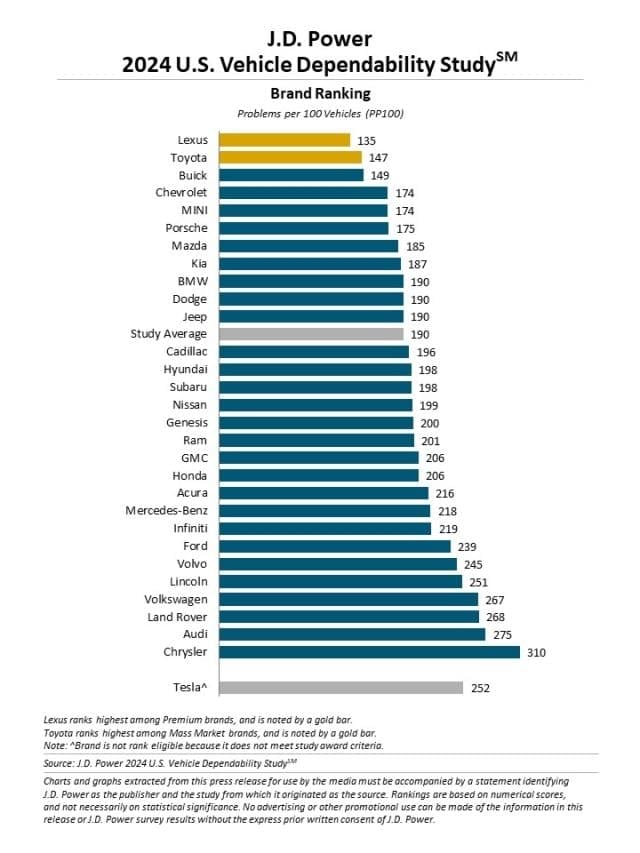Car Rental Brands: Your Comprehensive Guide to Navigating the Road Ahead
Car Rental Brands: Your Comprehensive Guide to Navigating the Road Ahead cars.truckstrend.com
The world of car rental is a vast and dynamic landscape, populated by a diverse array of brands, each vying for your business with unique offerings, price points, and customer experiences. Far more than just a means to get from point A to point B, choosing the right car rental brand can significantly impact the quality, convenience, and cost of your travel. Understanding the nuances of these brands – from global giants to niche providers – is crucial for anyone planning a business trip, a family vacation, or simply needing a temporary set of wheels.
In this comprehensive guide, we will delve into the intricate ecosystem of car rental brands, exploring their structures, typical offerings, and what distinguishes them. We’ll provide practical advice, actionable insights, and a detailed look at how to make the best choice for your specific needs, ensuring a smooth and stress-free rental experience.
Car Rental Brands: Your Comprehensive Guide to Navigating the Road Ahead
The Landscape of Car Rental Brands: Who’s Who and What They Offer
The car rental industry is dominated by a few major global players, each operating a portfolio of brands that cater to different market segments. Understanding these conglomerates can help you discern the underlying service level and price point to expect.
1. Enterprise Holdings:
- Brands: Enterprise Rent-A-Car, National Car Rental, Alamo Rent A Car.
- Focus:
- Enterprise: Known for its extensive neighborhood locations, strong customer service, and corporate rentals. Often perceived as the "go-to" for local replacements or short-term needs.
- National: Caters heavily to business travelers, offering a "Emerald Club" loyalty program that allows members to choose their own vehicle from the aisle and expedited service.
- Alamo: Popular for leisure travelers, particularly families, offering competitive rates and a straightforward rental process, often with self-service kiosks at airports.


2. Hertz Global Holdings:
- Brands: Hertz, Dollar Car Rental, Thrifty Car Rental.
- Focus:
- Hertz: A premium brand with a strong global presence, offering a wide range of vehicles including luxury and specialty cars. Caters to both business and leisure travelers, with robust loyalty programs (Gold Plus Rewards).
- Dollar: Positioned as a budget-friendly option, popular with leisure travelers looking for value.
- Thrifty: Similar to Dollar, offering competitive rates and focusing on the value-conscious segment.

3. Avis Budget Group:
- Brands: Avis, Budget Car Rental, Payless Car Rental.
- Focus:
- Avis: A premium-leaning brand with a strong focus on business travelers and higher-end leisure customers. Known for its global reach and customer service. Preferred loyalty program offers expedited service.
- Budget: As the name suggests, a more economical choice appealing to budget-conscious travelers while still offering a reliable fleet and broad network.
- Payless: The most budget-oriented brand in the group, often found off-airport or with older fleet models, targeting the absolute lowest price point.
4. Europcar Mobility Group:
- Brands: Europcar, Goldcar, Fox Rent A Car (acquired).
- Focus:
- Europcar: A major player, particularly strong in Europe, offering a wide range of vehicles for both leisure and corporate rentals.
- Goldcar: A low-cost brand primarily operating in popular European tourist destinations, often known for very low base prices but potentially aggressive upsells.
- Fox Rent A Car: A budget brand with a significant presence in the U.S., offering competitive rates often at off-airport locations.
5. Sixt:
- Focus: A rapidly growing global brand, particularly strong in Europe and expanding in the U.S. Sixt positions itself as a premium provider with a focus on newer, higher-end vehicles and excellent customer service. While not always the cheapest, it offers a distinct luxury and modern fleet experience.
6. Local and Peer-to-Peer (P2P) Rentals:
- Examples: Turo (P2P), smaller independent local rental agencies.
- Focus: P2P platforms like Turo allow individuals to rent out their personal vehicles, offering a vast array of unique cars and often more flexible pickup/drop-off options. Local agencies can sometimes offer highly competitive rates, personalized service, and unique vehicle types, though their fleet size and network might be limited.
Benefits of Choosing Reputable Car Rental Brands
Opting for well-established car rental brands comes with several advantages that contribute to a smoother and more reliable experience:
- Extensive Fleet Selection: A wider variety of vehicle types, from economy cars to luxury SUVs, ensures you find the perfect fit for your needs.
- Broad Network and Convenience: Numerous locations, including major airports, downtown areas, and neighborhood branches, offer flexibility for pickup and drop-off.
- Reliability and Maintenance: Major brands typically maintain newer fleets and adhere to strict maintenance schedules, reducing the likelihood of breakdowns.
- 24/7 Roadside Assistance: Peace of mind knowing help is just a phone call away in case of an emergency.
- Standardized Policies: Clear terms and conditions, though always read the fine print.
- Loyalty Programs: Opportunities to earn points, receive upgrades, and enjoy expedited service.
- Online Booking and Mobile Apps: Streamlined processes for reservations, modifications, and check-ins.
How to Rent from Car Rental Brands: A Step-by-Step Guide
Renting a car is generally straightforward, but knowing the process helps:
- Choose Your Brand and Vehicle Type: Consider your budget, the number of passengers, luggage, and desired amenities.
- Compare Prices: Use aggregator sites (Expedia, Kayak, Priceline) but also check individual brand websites directly, as they sometimes offer exclusive deals.
- Book Your Reservation:
- Online/App: Most convenient. Enter pickup/drop-off locations, dates/times, and select your vehicle.
- Phone: Good for complex bookings or if you have specific questions.
- In-person: Possible but often more expensive and subject to availability.
- Provide Necessary Information: You’ll need your driver’s license details and a credit card for payment and security deposit.
- Understand the Terms: Pay close attention to mileage limits, fuel policy, and cancellation fees.
- Pickup the Vehicle:
- Present your valid driver’s license (international driving permit if applicable), the credit card used for booking (must be in the primary renter’s name), and sometimes proof of address.
- Review the rental agreement carefully before signing.
- Inspect the Vehicle Thoroughly: Before leaving the lot, walk around the car, noting any existing dents, scratches, or damage on the rental agreement form. Take photos or videos with your phone for your records. Check the fuel level.
- Return the Vehicle:
- Return the car by the agreed-upon time and date to avoid late fees.
- Adhere to the fuel policy (e.g., return full if that was the agreement).
- Ensure the car is clean and free of personal belongings.
- Request a final receipt.
Important Considerations When Renting
- Insurance: This is often the most confusing part.
- Collision Damage Waiver (CDW) / Loss Damage Waiver (LDW): Waives your financial responsibility for damage to the rental car. Often includes theft protection.
- Liability Insurance: Covers damage to other vehicles or property, or injuries to other people.
- Personal Accident Insurance (PAI): Covers medical expenses for you and your passengers.
- Consider: Your personal car insurance policy might extend to rentals. Many credit cards offer secondary CDW/LDW coverage if you pay with their card. Evaluate third-party rental car insurance providers for potentially cheaper comprehensive coverage. Always understand what you’re covered for before you drive off.
- Fuel Policy:
- Full-to-Full: Most common and usually cheapest. Pick up full, return full.
- Pre-Purchased Fuel: You buy a full tank upfront and return it empty. Only economical if you plan to use a full tank.
- Return Empty/Pay for Refill: Rental company refills and charges a premium price per gallon plus a service fee. Avoid if possible.
- Mileage Limits: Most major brands offer unlimited mileage, but always confirm, especially with budget or specialty rentals.
- Age Restrictions & Young Driver Fees: Most companies require renters to be at least 21, and those under 25 will almost certainly incur a "young driver" surcharge.
- Additional Driver Fees: If anyone else will drive, they must be added to the rental agreement, usually for an extra daily fee.
- One-Way Rental Fees: Dropping off at a different location than pickup often incurs a significant "one-way" fee.
- Toll Road Management: Rental companies offer electronic toll devices, but they come with daily fees and administrative charges. Consider bringing your own transponder or using cash lanes if available.
- Optional Extras: GPS, child seats, Wi-Fi hotspots – these add up quickly. Consider bringing your own or using smartphone apps.
Types and Categories of Car Rental Brands
Beyond the major groups, brands can be categorized by their typical service level and price point:
- Premium/Luxury Brands: Sixt, Hertz (certain tiers), Avis (certain tiers). Focus on newer models, luxury vehicles, expedited service, and a seamless experience. Higher price point.
- Mid-Range Brands: Enterprise, National, Avis, Hertz. Offer a balance of good service, reliable vehicles, and competitive pricing. Widest appeal.
- Budget-Friendly Brands: Alamo, Budget, Dollar, Thrifty, Payless, Fox. Prioritize the lowest possible price. May have older fleets, fewer amenities, or less personalized service. Often found off-airport for even better deals.
- Specialty/Niche Providers:
- Peer-to-Peer (e.g., Turo): Offers unique vehicles and flexible pickup options directly from vehicle owners. Can be cheaper or more expensive depending on the car.
- Local Independents: Smaller, family-owned businesses that might offer unique cars or highly personalized service at competitive local rates, but with limited locations.
Practical Advice and Actionable Insights
- Book in Advance: Especially for peak seasons or specific car types, booking early almost always secures better rates.
- Compare Across Platforms: Use aggregator sites (Kayak, Skyscanner, etc.) but always check the individual brand websites directly for potential better deals or exclusive offers.
- Join Loyalty Programs: Even if you don’t rent often, signing up for free loyalty programs (e.g., Enterprise Plus, Hertz Gold Plus Rewards) can offer benefits like expedited check-in, free upgrades, or even free rental days over time.
- Understand the Total Cost: Don’t just look at the daily rate. Factor in insurance, fuel policy, extra fees (additional driver, young driver, one-way), and taxes.
- Inspect Before You Drive: This cannot be stressed enough. Document any pre-existing damage with photos or video. This protects you from being charged for damage you didn’t cause.
- Return on Time: Late returns can incur significant penalties, sometimes a full extra day’s charge.
- Check Your Credit Card Benefits: Many premium travel credit cards offer primary or secondary rental car insurance, which can save you a lot of money.
- Don’t Be Afraid to Ask: If you’re unsure about anything in the contract or about a fee, ask the rental agent for clarification before signing.
Potential Challenges and Solutions
- Unexpected Fees:
- Solution: Read the rental agreement thoroughly. Ask about all potential fees (tolls, cleaning, late return, early return, mileage overage) before signing.
- Vehicle Damage Disputes:
- Solution: Document the car’s condition extensively before and after your rental with time-stamped photos/videos. If damage is claimed, provide your evidence.
- Availability Issues (especially for specific car types or during peak season):
- Solution: Book well in advance. Be flexible with your car type if possible. Consider off-airport locations which sometimes have more inventory.
- Customer Service Problems:
- Solution: Remain calm and polite. Document all interactions (names, dates, times). If unresolved at the branch level, escalate to corporate customer service.
- Upselling at the Counter:
- Solution: Be firm but polite. You are not obligated to take additional insurance or upgrades you don’t need or want. Have your insurance plan decided before you arrive.
Representative Car Rental Price Comparison Table
Please note: Car rental prices are highly dynamic and vary significantly based on location, time of year, duration, car type, and demand. The prices below are illustrative estimates for a standard compact car rental (e.g., Toyota Corolla, Hyundai Elantra) for a 3-day rental in a major U.S. city during an off-peak period. Actual prices will differ.
| Brand Category | Typical Brands (Examples) | Estimated 3-Day Rental Range (USD)* | Key Features / Considerations | Ideal For |
|---|---|---|---|---|
| Budget-Friendly | Alamo, Budget, Dollar, Thrifty, Payless, Fox | $75 – $150 | – Lowest base rates – Older fleet models possible – Less flexible cancellation – Potential for more aggressive upsells at counter – Often off-airport locations for best deals |
Price-conscious travelers, short trips, basic transportation |
| Mid-Range | Enterprise, National, Avis, Hertz | $120 – $250 | – Reliable, newer fleet – Good customer service – Wide network of locations (airport & neighborhood) – Loyalty programs available – Standard insurance options |
Business travelers, leisure travelers seeking balance of cost & service, family trips |
| Premium/Luxury | Sixt, Hertz (Prestige/Dream), Avis (Select) | $200 – $500+ | – Newer, often higher-end vehicles – Focus on customer experience & expedited service – Special vehicle classes (luxury, sports cars, EVs) – Loyalty benefits often more substantial |
Travelers seeking comfort, style, latest models, special occasions, corporate executives |
| Peer-to-Peer | Turo | Varies Widely ($50 – $1000+) | – Wide variety of unique vehicles – Flexible pickup/drop-off directly from owners – Insurance options vary by owner/platform – Less standardized policies |
Unique vehicle needs, flexible schedules, potentially niche cars, local experiences |
Frequently Asked Questions (FAQ) About Car Rental Brands
Q1: What documents do I need to rent a car?
A1: You’ll typically need a valid driver’s license (from your home country, and an International Driving Permit if your license isn’t in English and you’re in a foreign country), and a major credit card in the primary renter’s name. Sometimes proof of address is requested.
Q2: How old do I have to be to rent a car?
A2: Most car rental brands require renters to be at least 21 years old. Renters between 21 and 24 years old will almost always be subject to a "young driver fee," which can significantly increase the rental cost.
Q3: Do I need to buy rental car insurance from the rental company?
A3: Not necessarily. Your personal car insurance policy might extend to rental cars, or your credit card might offer secondary (or sometimes primary) rental car insurance if you pay for the rental with that card. Always check with your insurance provider and credit card company first. Only purchase the rental company’s insurance if you have no other coverage or want comprehensive peace of mind.
Q4: Can I rent a car with a debit card?
A4: Many major brands allow debit card rentals, but often with stricter requirements. These can include a higher security deposit, proof of return travel (e.g., flight ticket), additional forms of ID, or a credit check. It’s always best to check the specific brand’s policy in advance.
Q5: What’s the difference between CDW and LDW?
A5: CDW (Collision Damage Waiver) and LDW (Loss Damage Waiver) are often used interchangeably. They waive your financial responsibility for damage to or theft of the rental vehicle. They do not cover damage to other vehicles or property, or injuries to other people.
Q6: Can I pick up a car in one city and drop it off in another?
A6: Yes, this is known as a "one-way rental." Most major brands allow it, but it typically incurs a substantial "one-way fee" which can vary greatly depending on the distance and demand between the two locations.
Q7: What if I return the car late?
A7: Returning a car late can result in significant fees. Most companies have a grace period (e.g., 29 minutes), but exceeding it can lead to an hourly charge or even a full extra day’s rental fee at a higher walk-up rate. Always communicate with the rental company if you anticipate a late return.
Q8: How can I avoid hidden fees?
A8: Read the rental agreement carefully, especially the fine print regarding fuel, mileage, additional drivers, young driver surcharges, one-way fees, and early/late return penalties. Ask questions about any charges you don’t understand before you sign. Decline optional extras you don’t need.
Conclusion
Navigating the world of car rental brands can seem daunting at first, but with a clear understanding of the major players, their offerings, and key considerations, you can make informed decisions that enhance your travel experience. From the global reach and diverse fleets of Enterprise and Hertz to the premium experience of Sixt and the budget-friendly options of Alamo and Dollar, there’s a brand suited for every traveler and every journey.
By taking the time to compare prices, understand insurance options, and meticulously inspect your vehicle, you can unlock the convenience and freedom that car rentals offer, ensuring a smooth ride wherever your adventures take you. Happy travels!






